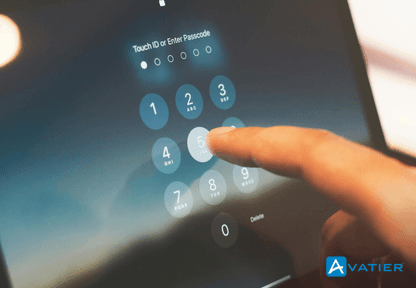June 25, 2025 • Mary Marshall
Beyond Traditional Security: How MSPs Are Revolutionizing Enterprise Identity Management
Discover how managed service providers are transforming enterprise security with AI-driven identity solutions, and zero-trust frameworks.

Enterprises face unprecedented security challenges. The rapid shift to hybrid work models, cloud adoption, and increasingly sophisticated cyber threats have exposed critical vulnerabilities in traditional security approaches. According to recent research, 80% of data breaches involve compromised credentials, highlighting the critical importance of robust identity management solutions.
For forward-thinking organizations, Managed Service Providers (MSPs) specializing in identity management have emerged as strategic partners in revolutionizing enterprise security. These specialized providers deliver comprehensive identity solutions that go beyond traditional offerings, leveraging automation, AI, and containerized technology to transform security operations from potential bottlenecks into business enablers.
The Evolving Threat Landscape: Why Traditional Security Falls Short
The security perimeter has fundamentally changed. Today’s enterprises operate in complex environments where employees, contractors, and partners access critical resources from anywhere, on any device. Traditional security approaches centered on network perimeters and static access controls are increasingly inadequate.
Consider these sobering statistics:
- 94% of organizations experienced an identity-related breach in 2022
- 84% of companies suffered from identity-related security breaches in the last year
- The average cost of a data breach reached $4.45 million in 2023, a 15% increase over the past three years
These statistics underscore a critical reality: identity has become the new perimeter, and traditional security approaches focused solely on infrastructure protection are insufficient.
The Rise of Identity-Centric Security Through Managed Services
Modern MSPs specializing in identity management are fundamentally changing how enterprises approach security. Rather than treating identity as just another security component, these providers position identity at the core of security strategy, implementing solutions that balance robust protection with seamless user experiences.
How MSPs Transform Enterprise Security
1. Unified Identity Lifecycle Management
Leading MSPs implement comprehensive Identity Anywhere Lifecycle Management solutions that automate and streamline the entire identity journey—from onboarding to offboarding and everything in between. This approach eliminates security gaps that often occur during employee transitions, ensuring appropriate access levels throughout the employment lifecycle.
These solutions provide:
- Automated provisioning and deprovisioning based on identity context
- Continuous certification of entitlements to prevent privilege creep
- Workflow automation that reduces manual errors and improves operational efficiency
- Real-time visibility into identity states across the enterprise
2. Implementation of Zero-Trust Architecture
Forward-thinking MSPs help enterprises transition from traditional perimeter-based security to zero-trust models centered on the principle of “never trust, always verify.” This fundamental shift recognizes that threats can originate from both outside and inside the network.
Key components of MSP-led zero-trust implementation include:
- Advanced Multifactor Authentication Integration that verifies user identity through multiple validation methods
- Continuous authentication that evaluates risk throughout user sessions
- Context-aware access policies that consider device, location, behavior, and other risk factors
- Micro-segmentation of network resources to limit lateral movement in case of breach
3. AI-Driven Identity Intelligence
Modern identity MSPs leverage artificial intelligence and machine learning to transform static identity management into dynamic, intelligent systems. These capabilities enable:
- Anomaly detection that identifies suspicious authentication patterns
- Behavior-based risk scoring that adapts security controls to threat levels
- Predictive analytics that anticipate potential security issues before they occur
- Automated remediation of common identity-related incidents
4. Containerized Identity Services
Innovative MSPs are revolutionizing identity deployment through containerized solutions. Identity-as-a-Container (IDaaC) represents the cutting edge of identity management technology, allowing organizations to deploy standardized, secure identity services across diverse environments.
Containerization delivers significant advantages:
- Consistent identity services across hybrid and multi-cloud environments
- Rapid deployment and scaling of identity infrastructure
- Simplified disaster recovery and business continuity
- Reduced operational complexity through standardized implementation
Business Impact: The Transformative Value of Identity MSPs
Beyond security improvements, specialized identity MSPs deliver measurable business value in several critical areas:
1. Operational Efficiency Gains
By automating routine identity tasks and streamlining processes, MSPs free IT resources for strategic initiatives. The impact is substantial:
- 65% reduction in help desk tickets related to access issues
- 80% decrease in manual identity administration tasks
- 50% improvement in onboarding efficiency
- 70% faster offboarding processes, reducing security risks during employee transitions
2. Enhanced Compliance Posture
Regulatory compliance represents a significant challenge for enterprises across industries. Identity MSPs deliver specialized solutions for various compliance requirements:
- For Healthcare: HIPAA-compliant identity management that protects patient data while enabling appropriate clinical access
- For Financial Services: Solutions tailored to financial regulations that address strict audit and access control requirements
- For Government: FISMA, FIPS 200 & NIST SP 800-53 compliance that meets stringent federal security standards
- For Education: FERPA-compliant solutions that protect student information while enabling educational access
These industry-specific solutions transform compliance from a burden into a competitive advantage, reducing audit costs and minimizing compliance-related disruptions.
3. Improved User Experience and Productivity
Modern identity MSPs recognize that security must enable rather than hinder productivity. Their solutions balance protection with usability through:
- Self-service capabilities that empower users to manage routine access needs
- Simplified authentication experiences that reduce friction while maintaining security
- Consistent access experiences across diverse applications and platforms
- Intelligent automation that anticipates user needs and streamlines access processes
The result? A 35% increase in user satisfaction with security processes and a 28% reduction in productivity losses due to access issues.
4. Accelerated Digital Transformation
Identity is often the hidden barrier to digital transformation initiatives. Advanced MSPs remove these barriers by:
- Enabling secure cloud adoption through consistent identity controls
- Supporting rapid integration of new digital services with standardized identity frameworks
- Providing flexible identity models that adapt to evolving business needs
- Delivering identity services that scale with business growth
Organizations working with specialized identity MSPs report 60% faster implementation of digital initiatives compared to those relying on traditional security approaches.
The MSP Advantage: Why Specialized Identity Partners Outperform Traditional Options
Not all managed services are created equal. Specialized identity MSPs offer distinct advantages over general-purpose IT service providers:
1. Deep Domain Expertise
Identity management requires specialized knowledge spanning authentication protocols, directory services, compliance requirements, and security best practices. Dedicated identity MSPs maintain teams with focused expertise in these areas, ensuring optimal implementation and ongoing management.
2. Purpose-Built Technology Stacks
Leading identity MSPs have developed or curated technology stacks specifically designed for identity management excellence. These purpose-built solutions integrate seamlessly with existing enterprise systems while providing superior security, scalability, and user experience.
3. Continuous Innovation
The identity landscape evolves rapidly. Specialized MSPs dedicate significant resources to research and development, ensuring their solutions incorporate the latest security advances, compliance requirements, and user experience improvements.
4. Reduced Total Cost of Ownership
While general IT providers may offer lower initial costs, specialized identity MSPs deliver superior total cost of ownership through:
- Faster implementation timeframes that accelerate time-to-value
- Lower operational overhead through automation and self-service capabilities
- Reduced security incidents that minimize costly breaches and disruptions
- Optimized licensing and resource utilization
Studies show organizations working with specialized identity MSPs achieve a 40% reduction in identity-related costs over a three-year period compared to generalist providers.
Selecting the Right Identity MSP: Critical Evaluation Criteria
When evaluating potential identity management service providers, organizations should consider several key factors:
Technical Capabilities
- Solution Completeness: Does the provider offer comprehensive capabilities across the identity lifecycle?
- Integration Depth: How effectively does their solution integrate with your existing technology stack?
- Deployment Flexibility: Do they support hybrid, multi-cloud, and on-premises environments?
- Advanced Security Features: Do their solutions incorporate zero-trust principles, AI-driven security, and advanced authentication options?
Operational Excellence
- Implementation Methodology: Do they follow proven implementation processes with clear milestones and outcomes?
- Support Structure: What levels of ongoing support do they provide, and how responsive are their support teams?
- Service Level Agreements: Do their SLAs align with your business requirements for availability, performance, and incident response?
- Management Capabilities: What dashboards, reporting, and analytics do they provide for ongoing oversight?
Strategic Alignment
- Industry Expertise: Do they have specific experience in your industry and its unique compliance requirements?
- Innovation Roadmap: How do they plan to evolve their solutions to address emerging threats and technologies?
- Business Understanding: Do they approach identity as a strategic enabler rather than just a technical function?
- Partnership Approach: Do they act as strategic advisors rather than simply service providers?
Implementing MSP-Led Identity Transformation: A Strategic Roadmap
Organizations embarking on MSP-led identity transformation should follow a structured approach:
Phase 1: Assessment and Vision
- Evaluate current identity maturity and security posture
- Identify critical gaps and vulnerabilities
- Define future-state vision aligned with business objectives
- Establish measurable success criteria
Phase 2: Solution Design
- Design target architecture incorporating MSP capabilities
- Define integration points with existing systems
- Establish governance frameworks and policies
- Create implementation roadmap with clear priorities
Phase 3: Implementation
- Deploy core identity infrastructure
- Integrate with critical applications and services
- Implement governance and compliance controls
- Migrate users and establish baseline operations
Phase 4: Optimization
- Monitor performance and security metrics
- Identify optimization opportunities
- Implement advanced capabilities
- Continuously adapt to evolving requirements
The Future of MSP-Delivered Identity: Emerging Trends
As enterprise security continues to evolve, forward-thinking identity MSPs are exploring several transformative approaches:
1. Passwordless Authentication at Scale
Leading MSPs are helping enterprises move beyond passwords entirely, implementing biometric, token-based, and contextual authentication that eliminates password-related vulnerabilities while improving user experience.
2. Identity Intelligence Centers
Advanced providers are establishing dedicated Identity Intelligence Centers that combine AI-driven analytics, threat intelligence, and identity data to provide comprehensive visibility and proactive security management.
3. Decentralized Identity Models
Innovative MSPs are exploring decentralized identity approaches that give users greater control over their identity information while maintaining enterprise security requirements.
4. Continuous Adaptive Trust
The most sophisticated MSPs are implementing continuous adaptive trust models that dynamically adjust security controls based on real-time risk assessment, balancing security and usability according to context.
Conclusion: Identity MSPs as Strategic Security Partners
In an era where identity has become the critical security perimeter, specialized MSPs deliver far more than technical services—they provide strategic partnership in transforming enterprise security. By combining deep identity expertise with advanced technology solutions, these providers help organizations navigate complex security challenges while enabling business agility.
The most successful enterprises recognize that identity is not merely a technical function but a strategic business capability. By partnering with specialized identity MSPs, these organizations are not just improving security posture—they’re creating foundational capabilities that enable digital transformation, enhance customer experiences, and drive competitive advantage.
As you consider your organization’s security strategy, evaluating the role of specialized identity MSPs should be a top priority. These providers offer a proven path to transforming identity from a potential vulnerability into a powerful business enabler.
To learn more about how identity management solutions can transform your enterprise security, explore Avatier’s comprehensive identity management services and discover why leading organizations trust Avatier to protect their most valuable assets while enabling business innovation.









